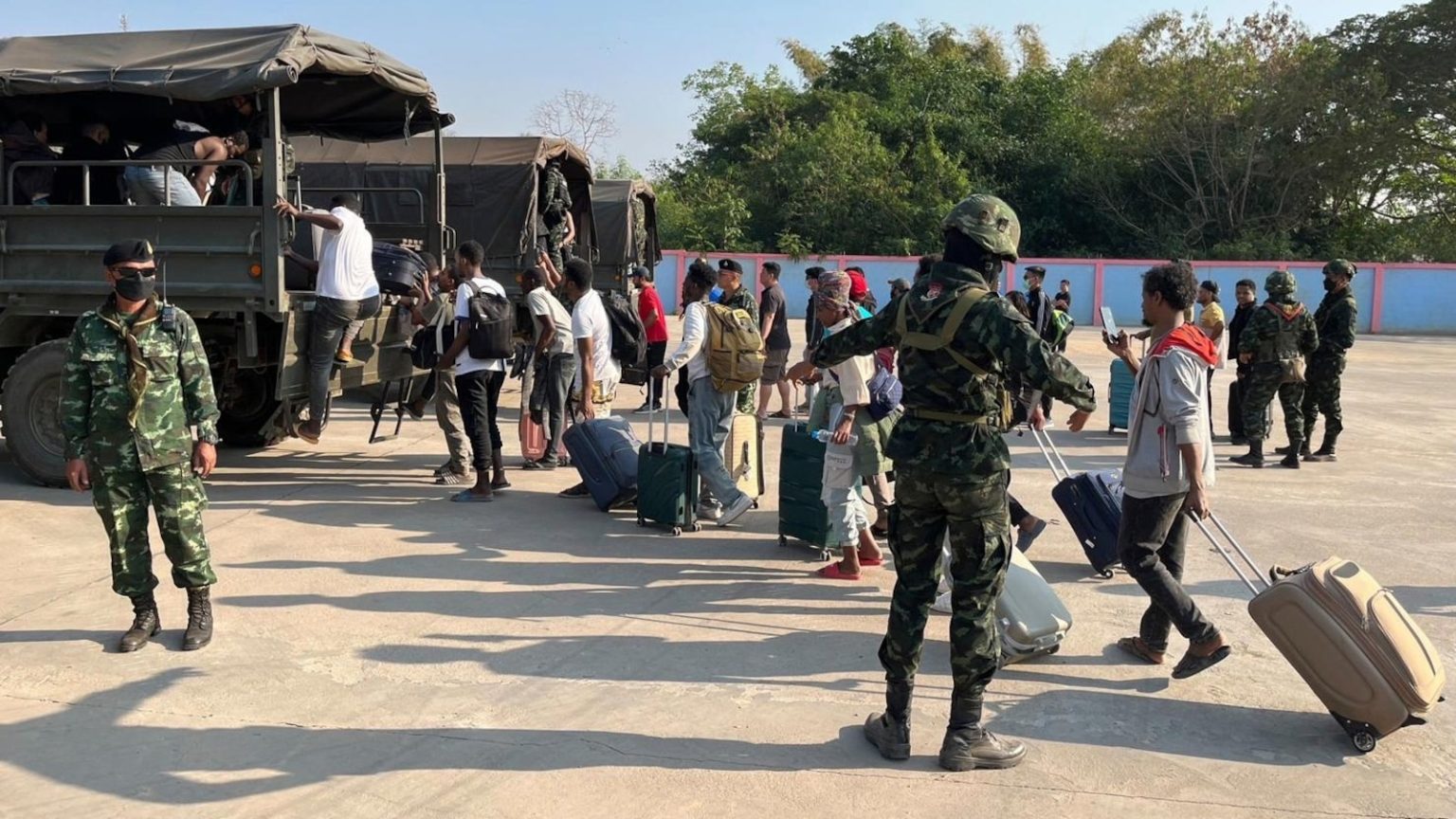The Rise of Southeast Asia as a Hub for Online Scam Operations
Southeast Asia has increasingly become a hotspot for criminal syndicates operating lucrative online scam centers. Countries like Myanmar, Cambodia, and Laos, which share borders with Thailand, have emerged as safe havens for these illegal activities. These syndicates target vulnerable individuals, luring them into working for scam operations under false pretenses. The scams often involve false romantic overtures, bogus investment pitches, and illegal gambling schemes, which have collectively extracted tens of billions of dollars from unsuspecting victims worldwide.
The latest crackdown on these scam centers has brought to light the plight of approximately 260 people who were rescued from Myanmar and are now being repatriated to their home countries. These individuals, representing 20 nationalities, including significant numbers from Ethiopia, Kenya, the Philippines, Malaysia, Pakistan, and China, were found to have been trafficked and forced into working in online scam centers. Their rescue marks a significant step in the region’s efforts to combat this growing criminal enterprise.
The Recent Operation: A Crucial Step in Fighting Human Trafficking
In a coordinated effort, the Thai army announced the repatriation of 260 individuals believed to have been victims of human trafficking. These individuals were rescued from Myanmar and transported across the border to Thailand’s Tak province. The operation was facilitated by the Democratic Karen Benevolent Army, an ethnic militia group that controls the area where the victims were held. The militia reportedly freed the workers and escorted them to the border, highlighting the complex dynamics of power in Myanmar’s frontier regions, where ethnic militias often wield more control than the central government.
The victims, who were subjected to inhumane conditions and forced labor, will undergo questioning by Thai authorities. If confirmed as trafficking victims, they will be protected under Thai law while awaiting repatriation to their respective countries. Thailand’s Deputy Prime Minister and Defense Minister, Phumtham Wechayachai, emphasized that his country would not establish additional shelters for these individuals, citing the already overwhelming burden of hosting over 100,000 refugees in nine camps along the Myanmar border.
This operation is part of a broader regional effort to tackle the scourge of online scams and human trafficking. Thailand’s Prime Minister, Paetongtarn Shinawatra, has pledged to collaborate with neighboring countries, including China, to dismantle these criminal networks. The Chinese government has been particularly vocal about the issue, given the large number of its nationals affected by these scams.
The Origin of the Scam Crisis and Its Global Reach
The roots of this crisis can be traced back to the early 2020s, when criminal syndicates began exploiting the porous borders and political instability of Southeast Asia to set up scam operations. These syndicates prey on individuals seeking better economic opportunities, luring them with promises of legitimate employment. Once recruited, these individuals are often subjected to forced labor, confined to compounds, and coerced into participating in online scams.
Myanmar’s northern Shan state, along its border with China, has been a focal point for these operations. Following widespread embarrassment over illegal casinos and scam operations in the region, China pressured Myanmar’s ethnic guerrilla groups to shut down these activities in late 2023. The crackdown led to the repatriation of an estimated 45,000 Chinese nationals suspected of involvement in illegal activities. However, the problem persists, with new victims being continually lured into these criminal enterprises.
International Collaboration and the Fight Against Scams
The Thai government has taken decisive steps to address the issue, including cutting off electricity, internet, and gas supplies to areas along its border with Myanmar where scam centers are known to operate. This measure, taken under the guise of national security, reflects the severity of the economic and social damage caused by these operations. Similar actions are being considered for areas bordering Cambodia, where scam activities are also rampant.
China has been a key partner in this effort, with high-level officials visiting Thailand to discuss strategies for dismantling these criminal networks. The visit of Liu Zhongyi, China’s Vice Minister of Public Security, to Thailand in early 2024 underscored Beijing’s commitment to addressing the issue. The collaboration between Thailand and China has been further strengthened by the personal intervention of Prime Minister Shinawatra, who has emphasized the need for a coordinated regional response to this growing threat.
The Human Cost of Online Scams and Trafficking
Behind the statistics and the diplomatic efforts, there are countless stories of individuals whose lives have been shattered by these scam operations. Among the most high-profile cases is that of Chinese actor Wang Xing, who was lured to Bangkok with promises of legitimate work only to find himself trafficked into a scam compound in Myanmar. His harrowing tale, which spread rapidly on social media, highlights the vulnerabilities of even the most unlikely victims.
The stories of those rescued in the recent operation are no less tragic. Many were tricked into leaving their homes with promises of better-paying jobs, only to find themselves trapped in virtual















